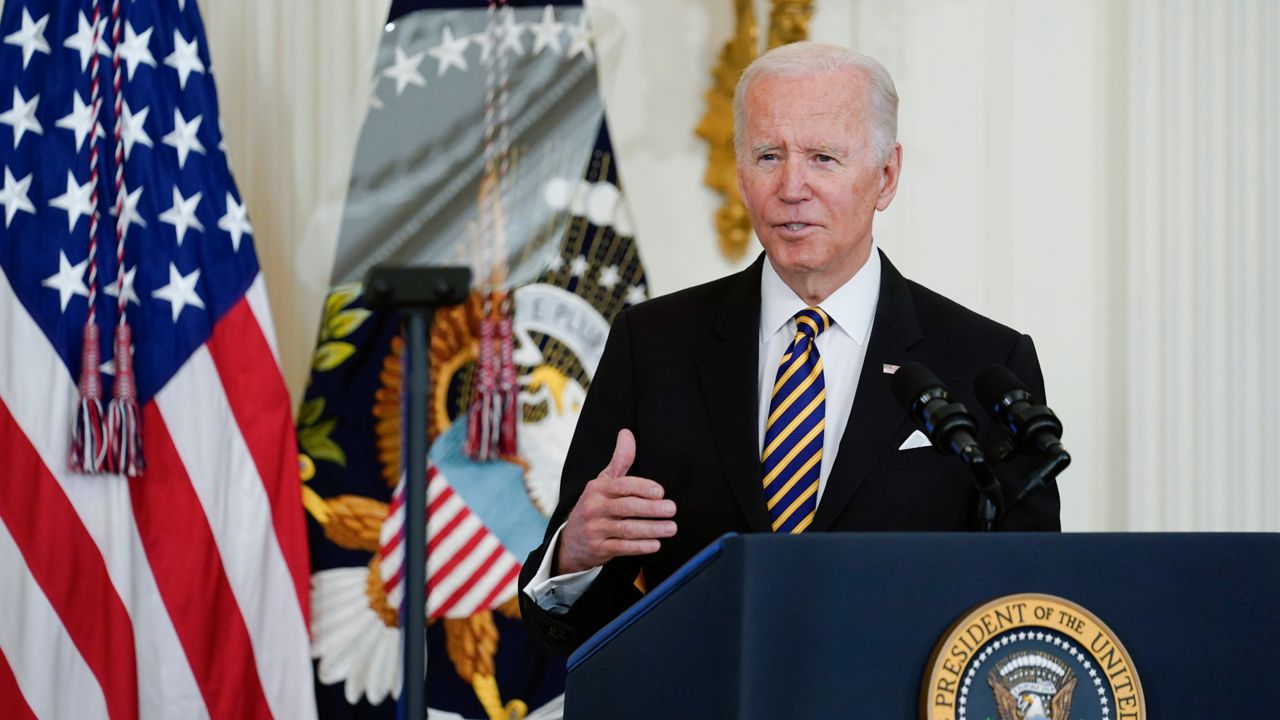WASHINGTON (AP) — President Joe Biden discussed efforts to address the unprecedented flow of migration along the U.S. southern border in a Friday afternoon call with Mexican President Andrés Manuel López Obrador.
“The majority of the conversation was about migration and was about continued work on coordination, economic coordination, on taking steps to reduce migration to the border and they have been a partner in that over the last several months,” White House press secretary Jen Psaki said at the Friday briefing.
Psaki said the tone of the call was “very constructive.” The agenda included the upcoming Summit of the Americas in June in Los Angeles, and the end of coronavirus restrictions on asylum seekers trying to come to the U.S.
The White House said their call lasted 52 minutes, ending just before 2 p.m. Senior Biden administration officials said ahead of the conversation that it would also address Russia's invasion of Ukraine, global economic challenges, the pandemic, climate change and the trade in illicit drugs.
The meeting came at a moment of international and domestic tensions, as the war in Ukraine has contributed to inflation worldwide amid concerns about likely shortages of oil, natural gas and food.
Moreover, the expected end on May 23 of the public health ban on asylum seekers could trigger a rush of migrants to the U.S.-Mexico border. That would exacerbate tensions over immigration ahead of U.S. midterm elections to decide if Democrats retain control of the House and Senate.
The Trump administration imposed the so-called Title 42 restrictions on asylum seekers in March 2020 as the coronavirus pandemic began to accelerate. Officials said at the time that the ban was to protect public health, but immigration control advocates also saw it as a way to seal the border to migrants, a longstanding priority of former President Donald Trump. Mexico is viewed as a key partner in managing the increase in migrants once the ban is lifted.
On Tuesday, López Obrador said during his daily news conference that the White House had requested the meeting and he was not entirely sure of what the two leaders would discuss.
“It’s important that there’s this communication, to listen to President Biden who has treated us with respect, as President Trump also treated us with respect, and we have to ensure a good relationship,” he said.
López Obrador also took note of the upcoming Summit of the Americas in his briefing. The Biden administration has made clear that coordinating a regional approach to managing migration flows will be a focus of the June meeting in Los Angeles.
López Obrador is also scheduled to visit four Central American countries and Cuba next week. In Central America, he plans to speak to his counterparts about economic development and social programs that could lessen the pressure for people in those countries to migrate. He has previously urged the U.S. government to support some of his initiatives in Central America.
On Ukraine, Mexico has condemned Russia’s invasion, but refused to follow the U.S. and other countries in implementing sanctions. The Biden administration has imposed sanctions and frozen central bank assets with the goal of eroding Russia's military capabilities.
On another subject, the U.S. government has voiced objections to controversial energy sector reforms pushed by López Obrador that would favor state-run electric power generators over private plants. A law along those lines passed, but a similar constitutional reform failed in Mexico’s Congress last week.










